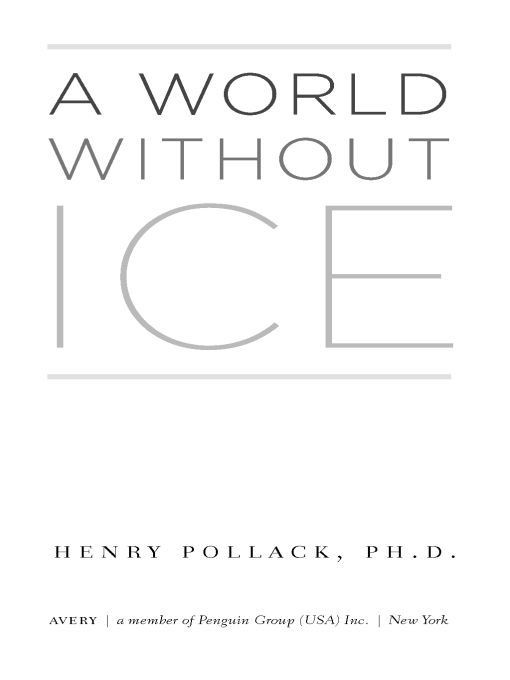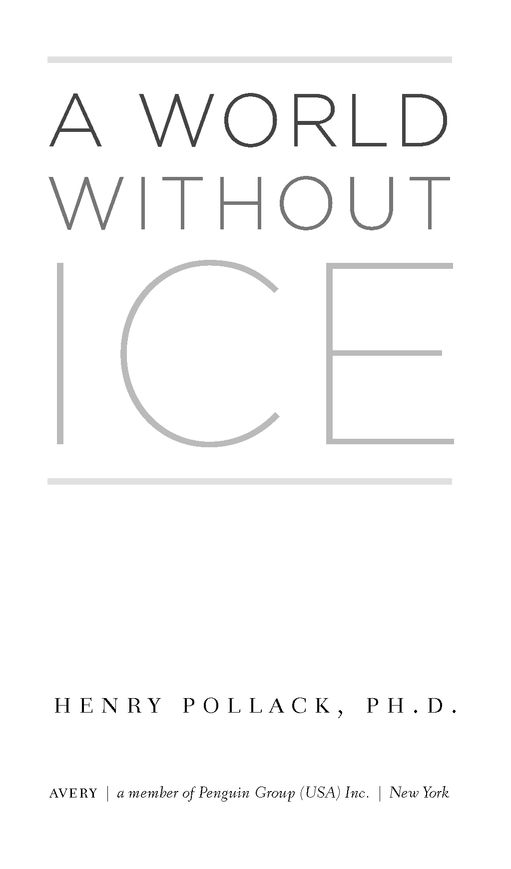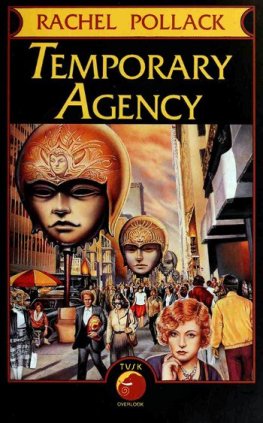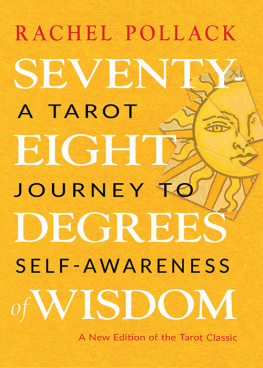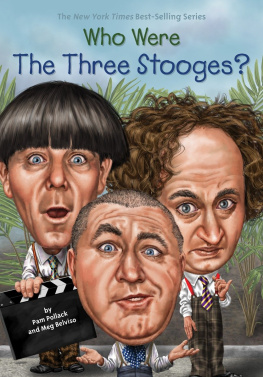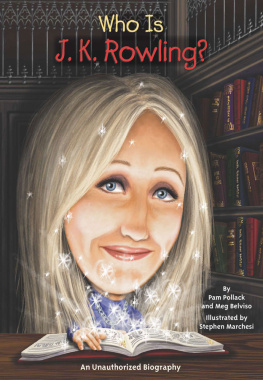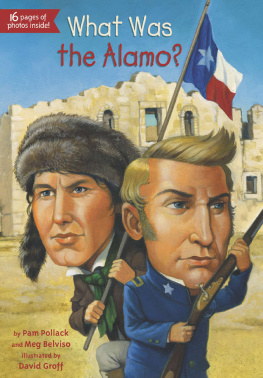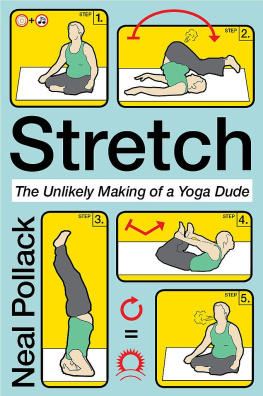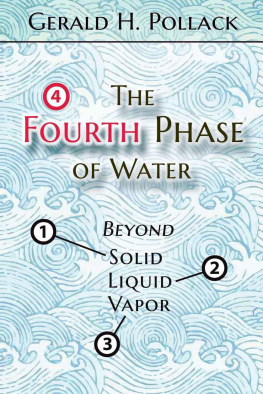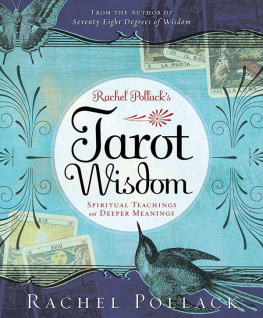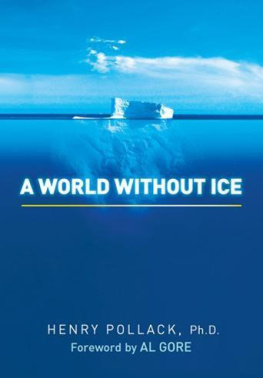Table of Contents
To my students and colleagues
who have helped me understand how Earth works
FOREWORD
Humanity has arrived at a historic moment of decision. Our home, Earth, is in grave danger. At risk of destruction is not our planet itself, but the unique climatic conditions that have made it hospitable for human life and that help sustain civilization as we know it.
For decades now, scientists have studied Earths climate, the causes contributing to its warming, and how this rising fever is impacting and will continue to impact our world and way of life. As overwhelming scientific evidence mounted that human activity is the primary cause of dramatic and accelerating global warming, many in the scientific community raised the alarm.
Testifying before elected officials and policymakers, collaborating on international studies, reporting to the United Nations Intergovernmental Panel on Climate Change, consulting with business leaders and speaking out in the media, scientists around the world have worked hard to communicate the severity and immediacy of the challenge before usa challenge of our own inadvertent making and one requiring urgent, bold, and united action to address.
The consequences of inaction are already becoming more and more apparent: rising sea levels, more severe droughts, increasingly violent storms, the spread of disease, the loss of crops, disappearing wildlife, and politically destabilizing tides of climate refugees.
Still, a small group of climate change naysayerssome with deep financial interests in defending the status quo, and others with philosophical objections to any role for government in solving the crisishave mounted a vigorous public relations campaign: first, to try to refute the inconvenient truth of global warming; second, to question its causes; third, to minimize its consequences; and finally, to complain about the alleged costs of transitioning from fossil fuels to more sustainable and renewable energy sources.
Such dissembling and obstruction have taken their toll; over the past fifteen years, as the United States refused to play a leadership role in marshaling global efforts to combat climate change, the crisis has grown much more severe. Now we approach several global tipping points, whichif we do not address them boldly and immediatelymay plague generations to come for literally thousands of years.
One such tipping point is the loss of Earths ice, accumulated over millions of years but now melting at an alarming rate. Across the globe, glaciers that have for centuries provided agricultural and drinking water for more than a billion people are quickly disappearing. In Antarctica, ancient ice shelvessome the size of Belgium, Scotland, or Franceare beginning to disintegrate, sending massive icebergs into the Southern Ocean. Hundreds of glaciers on Greenland are slipping faster and faster into the Atlantic. And in the Arctic Ocean, where an ice sheet has capped the polar sea for not only the entire history of human civilization but for most of the last three million years, researchers have in recent years observed a fast-paced shrinking and thinning of the Arctic sea ice that will in just a decade lead to an ice-free Arctic Ocean throughout the summer months.
Some might askso what? Why should we care about vanishing glaciers and remote polar ice caps? Why does the disappearance of distant ice really matter to a farmer in Nebraska, an engineer in Rio de Janeiro, an investment banker in New York, a salesperson in Cincinnati, a bus driver in London, a tour guide in Tanzania, a child in Bangladesh, or a businessman in Beijing?
The answer is that, on a global scale, ice plays a critical and major role in setting the temperature of Earths atmosphere and oceans, governing major weather patterns, regulating sea level, and dramatically impacting agriculture, transportation, commerce, and even geopolitics. Though we have been slow to recognize this, our history and future are inextricably linked to the worlds ice.
If we do not act now, as individuals, as communities, as businesses, and as nations to slow and gradually halt the current meltdown, we risk destroying the very global systems that have enabled us to thrive and prosper.
In this insightful, accessible, and important new book, Dr. Henry Pollack explores the vital role that ice plays in the functioning of our planet, how it impacts human life, how we in turn are affecting ice, and why the decisions we make today, both individually and collectively, will shape the world and human society for thousands of years to come.
A World Without Ice explains complex global systems in simple terms without dumbing down the message, and explores the very real implications for people and the planet without succumbing to romanticism or hyperbole. As such, this book will help a broad range of readers understand the challenges we face and the high stakes of the climate change debate. Readers will be confronted with the fact that humans are no longer passive players in the global climate system, but rather key drivers of many changes now becoming apparent.
I have known Dr. Pollack and followed his research into global climate change since 1992, when I called on him to testify before the Senate, and later I sought his expertise at the White House. A geophysicist at the University of Michigan since 1960, Dr. Pollack led a global scientific consortium that reconstructed Earths surface temperature over the past millennium, through the innovative use of borehole temperature measurements made in the rocks of Earths crust.
He has advised the National Science Foundation, testified before National Academy of Sciences and congressional committees, and was a contributor to and member of the United Nations Intergovernmental Panel on Climate Change, which shared the 2007 Nobel Peace Prize.
In addition to respecting his scientific expertise, though, I have also come to know and respect Dr. Pollack as an effective communicator, a scientist with the rare ability to engage ordinary people and to translate scientific ideas into everyday terms that are easy to understand. Ive watched Dr. Pollack, as one of my advisors on The Climate Project, help hundreds of people wrap their minds around the complexities and challenges of climate change, and come away not only better informed, but feeling empowered by their knowledge as well. Intuitively, he grasps the relationship between science and humanism, and bridges them with rationality and grace. He brings that same straightforward, affable approach to the pages of A World Without Ice, a book that I believe will help large numbers of readers understand and meet the paramount challenge of our time.
For years now, efforts to address the growing climate crisis have been undermined by the idea that we must choose between our planet and our way of life, between our moral duty and our economic well-being. These are false choices. In fact, the solutions to the climate crisis are the very same solutions essential to redressing our economic and national security crises.
Though daunted by the crisis at hand, I am by nature an optimist. I have seen peoples capacity, when informed and inspired, to bring about necessary change. I am hopeful that A World Without Ice, in illuminating the challenge of climate change through the prism of ice, will help spark people to engage their friends and families, their communities, congregations, companies, and countries, in the battle to save the natural environment that has nurtured us. We live on an unlikely, infinitesimal island of possibility in the endless sea of space, and we must all work to save our home before its too late.

